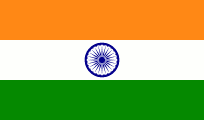Published 2023-12-06 10:10:15


Industry: General
In an era where remote work has become a prevailing trend, the realm of Health Information Technology (Health IT) stands out as a beacon of opportunity. The convergence of technology and healthcare has given rise to a plethora of remote job options, offering professionals the chance to contribute to the advancement of healthcare systems from the comfort of their homes. This article delves into the various types of remote jobs available in the field of Health IT, outlining the diverse opportunities for individuals seeking a virtual career in this dynamic sector.
The surge in telehealth services has paved the way for remote positions that directly impact patient care. Telemedicine practitioners, including doctors, nurses, and specialists, now have the flexibility to consult with patients from anywhere in the world. Additionally, telehealth support roles, such as administrative staff and schedulers, play a crucial role in facilitating seamless virtual healthcare experiences. Remote patient monitoring specialists contribute to the growing field of remote health tracking and management.
Professionals specializing in Health IT analysis find remote opportunities in roles like Electronic Health Record (EHR) analysts, health data analysts, and systems analysts for healthcare organizations. These roles involve leveraging data to enhance patient care, streamline processes, and optimize the overall performance of healthcare systems.
Remote project managers and coordinators play pivotal roles in overseeing the implementation of Health IT projects. This includes managing timelines, resources, and stakeholder communications. Agile coaches and Scrum Masters contribute to the agile development of Health IT projects, ensuring efficiency and adaptability in a remote work setting.
The development of healthcare applications is a thriving sector, offering remote opportunities for software developers, UI/UX designers, and QA testers. Remote professionals in this category contribute to the creation and improvement of software solutions that enhance patient care, streamline operations, and support medical professionals in their daily tasks.
Cybersecurity in healthcare is a critical concern, and remote specialists are in demand to ensure the protection of sensitive health data. Roles such as cybersecurity specialists, HIM security analysts, and compliance officers for remote Health IT security help safeguard the integrity and confidentiality of healthcare information.
Remote technical support and help desk roles cater to the ongoing needs of healthcare professionals using IT systems. Remote trainers contribute to the skill development of healthcare staff, ensuring they are proficient in utilizing new Health IT systems effectively.
Professionals involved in sales and marketing find remote opportunities in roles specific to the healthcare technology sector. Remote sales representatives, digital marketing specialists, and account managers contribute to the promotion and adoption of Health IT solutions.
As technology continues to evolve, new remote roles in Health IT are expected to emerge. The ongoing advancements in telehealth, artificial intelligence, and data analytics will likely create additional opportunities for remote professionals in the healthcare technology sector.
In conclusion, the field of Health Information Technology presents a myriad of remote job opportunities for professionals seeking to contribute to the advancement of healthcare systems. Whether in direct patient care, software development, security, or consultancy, the diverse roles available underscore the dynamic nature of remote work in the Health IT sector. As technology continues to play a pivotal role in healthcare, the demand for remote professionals in this field is poised to grow, offering a promising avenue for individuals looking to make a meaningful impact in the healthcare industry from the comfort of their homes.
Comments